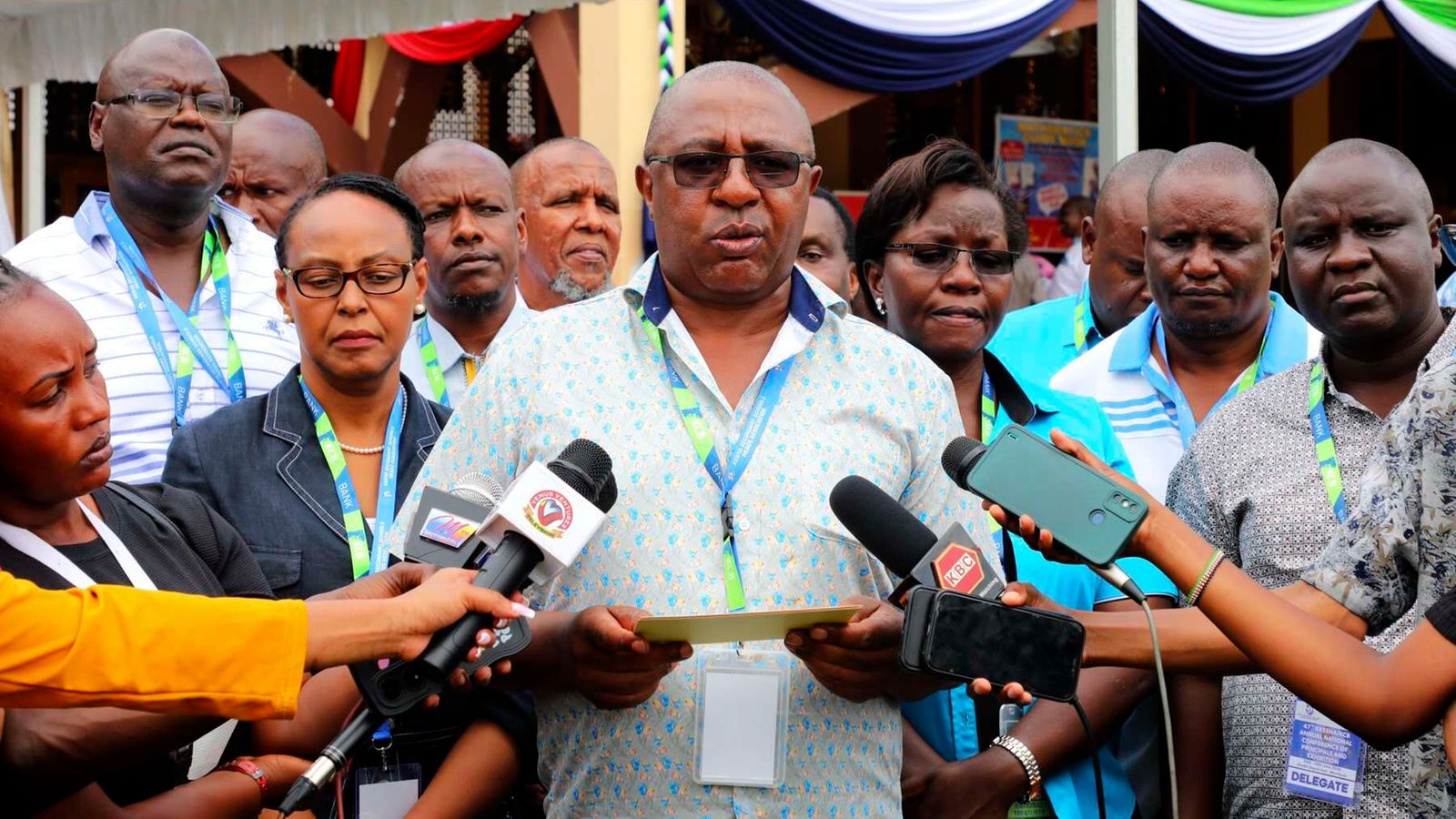Funding crisis hits public schools as principals warn of early closure

According to the association, schools are owed Sh7.5 billion for Term I and Sh10.5 billion for Term II of 2025.
Public secondary school heads have raised the alarm over a mounting financial crisis in their institutions, urging the government to urgently release more than Sh18 billion in capitation funds owed since the beginning of the year.
They warned that the delay has severely disrupted the running of schools, especially affecting day schools, and could force early closures before the scheduled August 1 deadline.
Speaking under the umbrella of the Kenya Secondary Schools Heads Association (Kessha), the principals accused the government of disbursing inadequate funds for two consecutive terms, paralyzing school operations across the country. According to the association, schools are owed Sh7.5 billion for Term I and Sh10.5 billion for Term II of 2025.
“Schools are facing a major crisis. These financial constraints have severely impacted the smooth running of many institutions, with day schools bearing the brunt of the crisis. The insufficient funding hampers the delivery of essential services, disrupts learning programmes, and strains the ability of school principals to meet basic operational needs,” said Kessha chairperson Willy Kuria.
He pointed out that the shortfall has made it difficult to conduct mock examinations for Form Four learners, who are preparing for their national exams. Kuria said end-of-term tests in many schools are also in jeopardy, adding that some institutions may shut down prematurely due to lack of funds.
“Teachers are forced to avoid giving complete examination papers and omit practicals. The issue has been quietly building over the past few years as can be vindicated by the previous years’ disbursement figures and affects learning,” he added.
Kuria, who spoke during a press conference in Murang’a town, said the problem extends beyond academics. Some schools are unable to pay non-teaching staff hired by boards of management and face disconnection of essential services such as electricity and water.
He noted that institutions catering for learners with special needs are particularly strained by the funding gaps, even though they require more resources to operate effectively.
Kuria was accompanied by Kessha Secretary-General Abdi Noor Haji, who said principals are under pressure from suppliers due to outstanding payments for goods and services already delivered. Haji said the lack of funds has also crippled co-curricular activities in schools.
“The situation is dire and we’re calling upon the government [to meet part of its bargain] because it was our hope that a second tranche will be released before schools close to pay salaries for our staff. The funding shortfalls have limited access to sports, arts, modern agriculture and clubs that enrich students' educational experiences and provided avenues for careers in those areas,” he said.
Kuria challenged the government to reinstate the cost-sharing model that was in place before 2017, which allowed parents to contribute part of school fees. He noted that every secondary school student is entitled to Sh22,244 per year in tuition, disbursed in three tranches — 50%, 30%, and 20%.
He said that since 2022, schools have consistently received less than the expected Sh6,673 for Term II. “Schools expect a capitation of Sh6,673 but in contrast, schools have, in what appears to be the norm, been receiving far below. In 2022, schools received Sh4,289.24, in 2023, Sh4,150.35 and in 2024 Sh4,505.50. The Sh3,471.60 schools received this year is the lowest,” said Kuria.
He explained that the capitation rate has not been reviewed in seven years, despite rising costs of goods and services, making it hard for schools to function.
“When schools lack adequate resources, performance is greatly affected and this can be attested to by the gradual increase in number of E [mean grade] countrywide in KCSE in the last three years,” he said.
In 2022, 30,822 candidates scored a mean grade of E in KCSE. The number rose sharply to 48,174 in 2023 and slightly to 48,333 in 2024.
Kuria pointed out that most of these poor grades were recorded in day schools, which accommodate more than 70 percent of learners in secondary education.
“Secondary schools, especially day secondary schools, have struggled to keep abreast with the latest technology, making it difficult for students to access modern learning tools, contributing to wider achievement gaps and perpetuating inequality in education,” said Kuria.
Kessha officials also urged the government to implement the minimum essential package for schools with low enrolment, as recommended by the Presidential Working Party on Education Reforms.
“The essential minimum package is supposed to insulate them and sustain them on everyday basics. We call for vacation of the directive to retain infrastructure funds from capitation. Alternative funds should be sought for infrastructure development in schools,” they stated.
